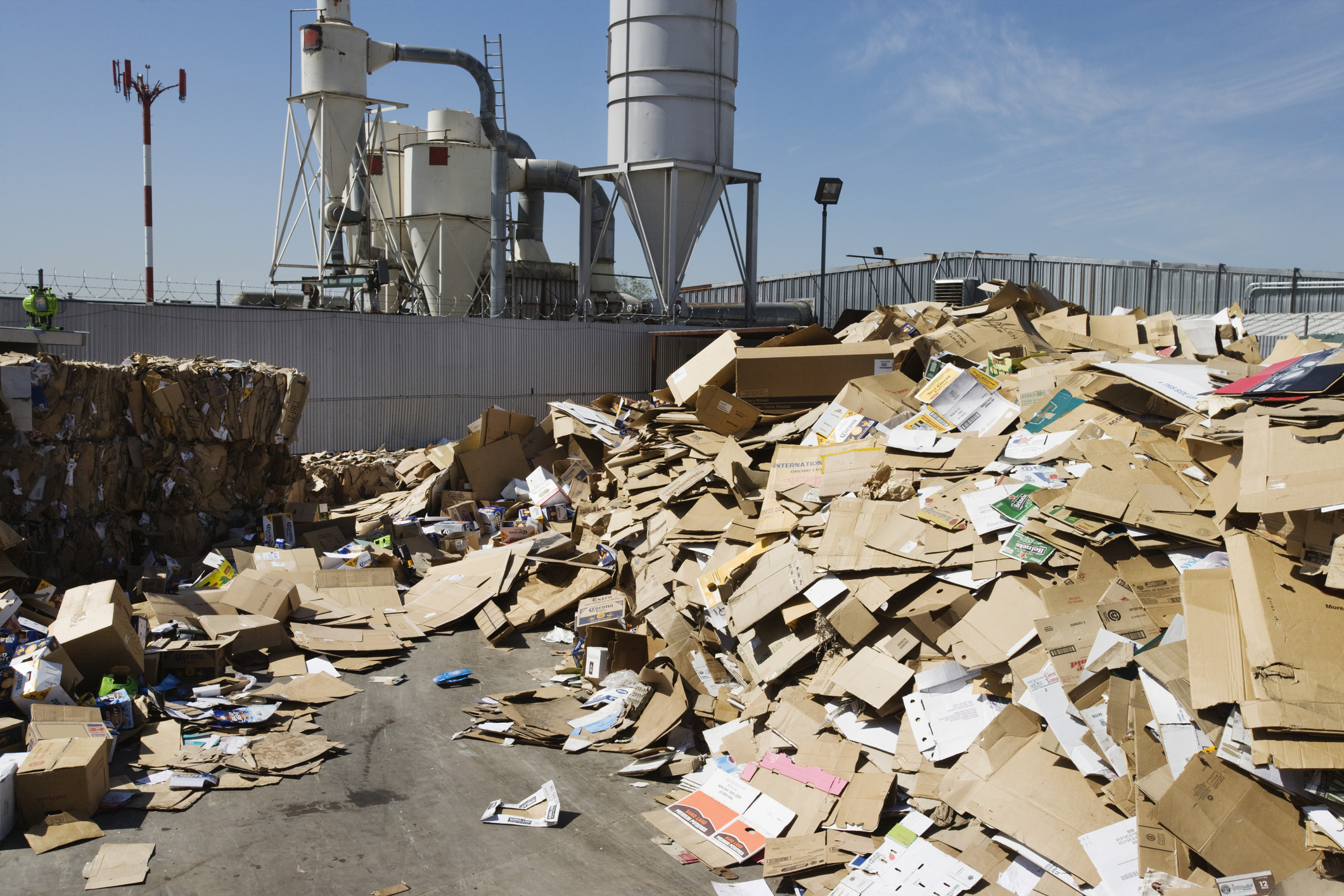
Research suggests recycling laws may turn people into “committed” recyclers.
Last year, Americans drank 12.8 billion gallons of bottled water—the equivalent of nearly 1.9 billion half-liter bottles every week. But people only recycled about a fourth of these disposable plastic bottles, meaning that some 70 billion bottles likely ended up in landfills—or worse, became part of the 8 million metric tons of plastic waste that winds up in the ocean each year.
Low recycling rates are no small problem, considering the enormous amounts of greenhouse gases that recycling can keep out of the atmosphere. Fortunately, a study shows that states are far from powerless to change this situation. Indeed, survey data from a team of researchers at Vanderbilt University and Duke University suggest that by strengthening their recycling laws, states can increase recycling rates by a substantial degree.
According to the study, “there are two principal policy instruments” that states use to encourage water bottle recycling. The first is a “bottle deposit,” a law that requires distributors to charge a deposit, usually 5 or 10 cents, for recyclable beverage containers. Bottle deposits give consumers a “direct financial incentive” to recycle: if they return empty containers, usually to a supermarket or other retailer, they can get the deposit refunded. Ten states currently have bottle deposit laws for certain beverages, but only five of those states include deposits for water bottles.
The second common recycling policy instrument is a law that encourages recycling by, for instance, requiring cities to provide recycling services. Many states have some version of a recycling law, but as the study explains, the legal regimes range widely in their strictness.
The strength of a state’s recycling law matters a lot, according to the study. The percentage of non-recyclers drops from 46 percent in states without recycling laws to 31 percent in states with strong recycling laws. The rate drops again to less than 13 percent non-recyclers in states with water bottle deposit laws.
To determine whether recycling laws cause people to recycle more, the research team also examined two states—Oregon and Connecticut—that recently added bottle deposits for water bottles. The researchers interviewed individuals before and after the enactment of the laws. They found that after the states enacted water bottle deposits, people recycled 15 percent more water bottles and “over 20 percent more people became diligent recyclers.”
Recycling policies do not have the same effect on everyone, according to the study. Recycling laws reportedly have the greatest effect on people who would not already recycle. On the other hand, incentives like bottle deposits have less impact on high-income individuals—who do not benefit much from taking the time to return bottles—and environmentally conscious people, who are more likely to recycle already.
But states get a large return from the individuals who do respond to recycling laws. As the researchers note, recycling laws tend to have “a transformative effect” on recycling habits. Rather than moderately increasing people’s recycling habits, they turn people who did not recycle at all into “committed recyclers.”
This study is valuable ammunition for recycling advocates in an era when there are growing calls for fact-based regulation. The survey results are also useful for state legislatures that may be considering changes to their recycling regimes.
Some states, like Oregon, are already toying with increased incentives to recycle. The Oregon state legislature recently reportedly increased its bottle deposit—which applies to water bottles—from five cents to ten cents in response to lagging return rates.
Other states are more ambivalent about their recycling incentives. In the Iowa legislature, there is a bill pending that would repeal the state’s five-cent bottle deposit, which does not currently apply to water bottles. The bill’s backers reportedly say they want to replace it with a new recycling program. Meanwhile, in Connecticut, there are competing efforts to either increase the five-cent deposit to ten cents or to replace it with a simple four-cent fee on containers.
The public is more certain about bottle deposits, at least in Iowa: 77 percent of Iowans surveyed reportedly said they support “retaining or expanding” the state’s deposit law.
A poll from Pew Research Center also shows strong support for recycling among Americans overall. Over 90 percent of respondents reported recycling at least “occasionally,” and a third of Americans “say it bothers them ‘a lot’ when others throw away” recyclable items.
Although these survey results suggest that a substantial number of Americans are committed to recycling, the results do not quite jibe with the data on recycling. In reality, Americans only recycled 34 percent of recyclable materials in 2013. Based on this number, it seems likely that some of the poll respondents exaggerated their recycling habits.
Regardless of survey respondents’ truthfulness about their own behavior, the polls suggest that on the whole, Americans like the idea of recycling. That may explain why, with a couple of simple policies, states have succeeded in inducing large numbers of people to become committed recyclers.



